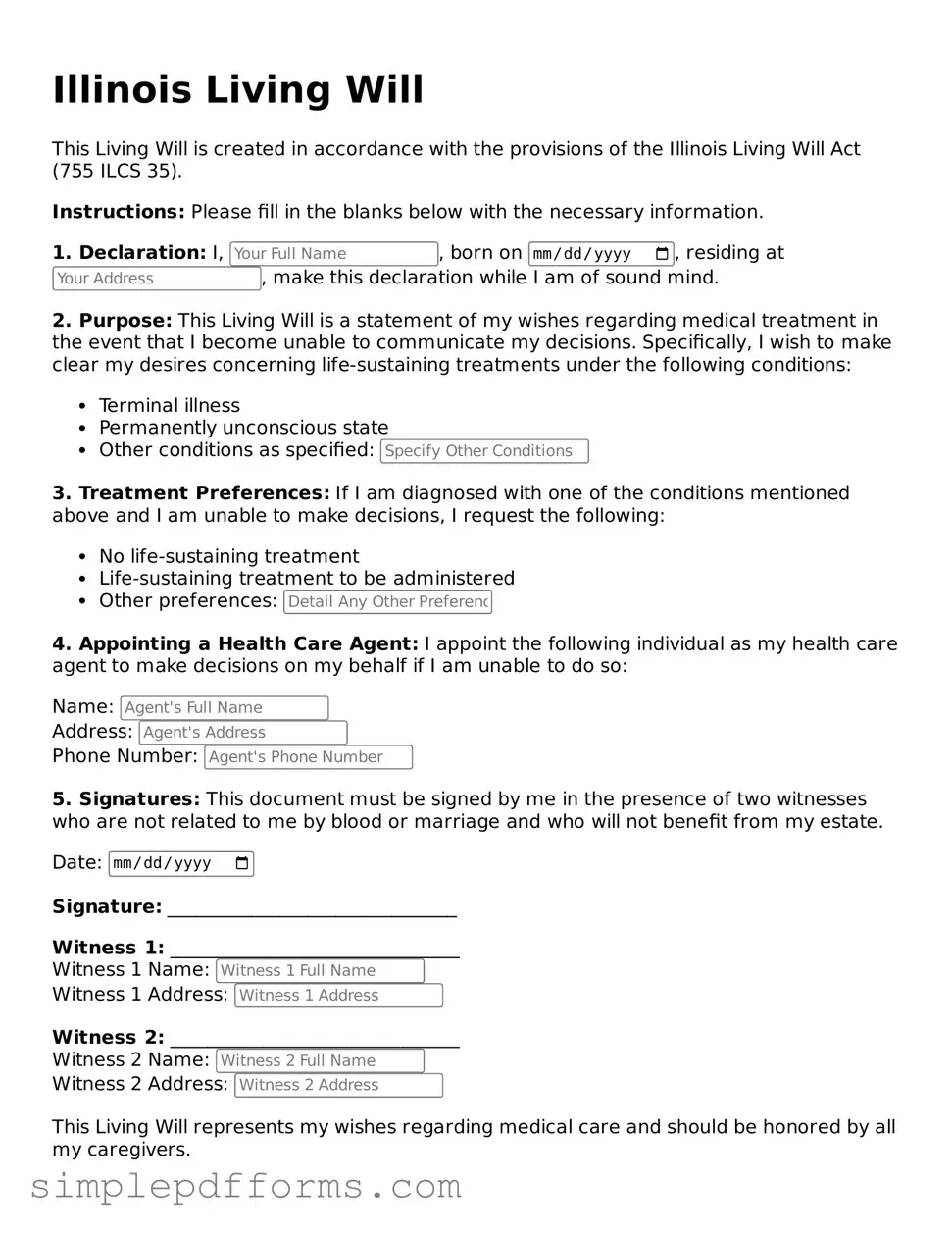Attorney-Verified Living Will Document for Illinois State
A Living Will is a legal document that allows individuals in Illinois to express their wishes regarding medical treatment in case they become unable to communicate those wishes themselves. This form is essential for ensuring that a person's preferences about life-sustaining measures are respected. Understanding how to properly complete and utilize the Illinois Living Will form can provide peace of mind for both individuals and their loved ones.
Open Living Will Editor Now

Attorney-Verified Living Will Document for Illinois State
Open Living Will Editor Now

Open Living Will Editor Now
or
Get Living Will PDF Form
Your form is waiting for completion
Complete Living Will online in minutes with ease.